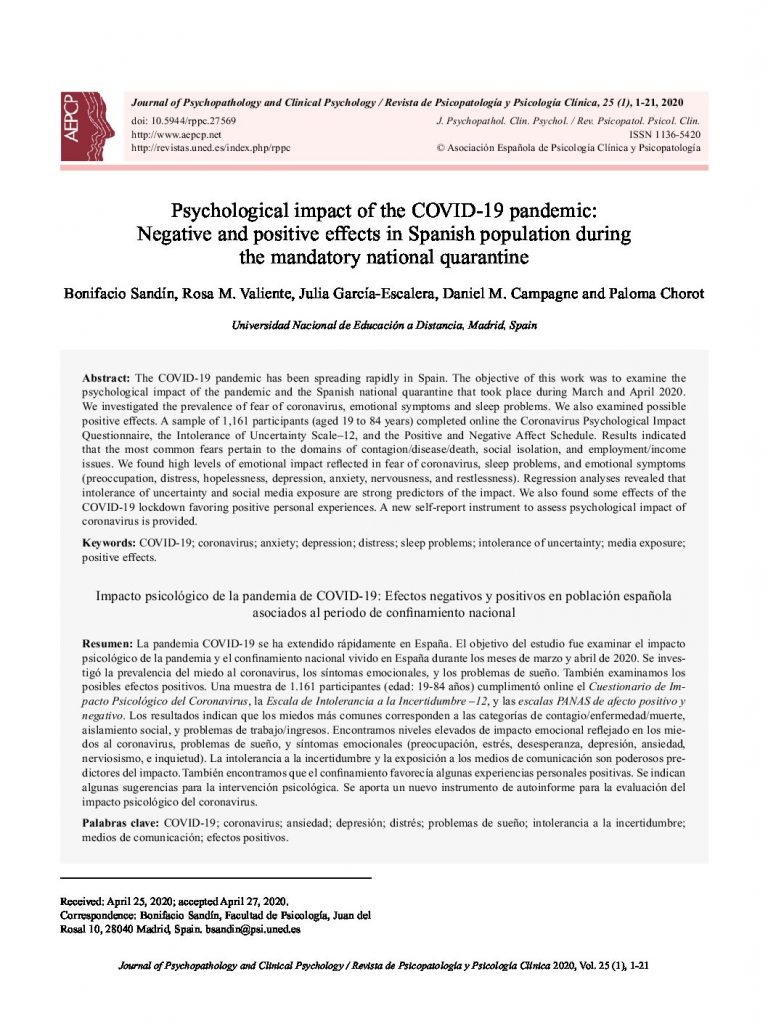Psychological impact of the COVID-19 pandemic: Negative and positive effects in Spanish population during the mandatory national quarantine
Psychological impact of the COVID-19 pandemic: Negative and positive effects in Spanish population during the mandatory national quarantine

- Impacto psicológico de la pandemia de COVID-19: Efectos negativos y positivos en población española asociados al periodo de confinamiento nacional.
- Social cognition, personality dimensions and clinical symptoms as variable predictors in people with polydrug abuse in treatment.
- Internet use patterns and the relation between generalized problematic internet use and psychological distress in Portuguese university students.
- Online sexual activities in Hispanic women: A chance for non-heterosexual women?.
- Biopsychosocial effects of training in recognition, emotional facial reproduction and relaxation: A pilot study.
- Propiedades psicométricas de los cuestionarios Reactive/Proactive Questionnaire (RPQ) y How I Think Questionaire (HIT) en estudiantes peruanos.
- Traumatic events and psychopathological symptoms in university students.
- Psychological impact of the COVID-19 pandemic: Negative and positive effects in Spanish population during the mandatory national quarantine
The COVID-19 pandemic has been spreading rapidly in Spain. The objective of this work was to examine the psychological impact of the pandemic and the Spanish national quarantine that took place during March and April 2020. We investigated the prevalence of fear of coronavirus, emotional symptoms and sleep problems. We also examined possible positive effects. A sample of 1,161 participants (aged 19 to 84 years) completed online the Coronavirus Psychological Impact Questionnaire, the Intolerance of Uncertainty Scale–12, and the Positive and Negative Affect Schedule. Results indicated that the most common fears pertain to the domains of contagion/disease/death, social isolation, and employment/income issues. We found high levels of emotional impact reflected in fear of coronavirus, sleep problems, and emotional symptoms (preoccupation, distress, hopelessness, depression, anxiety, nervousness, and restlessness). Regression analyses revealed that intolerance of uncertainty and social media exposure are strong predictors of the impact. We also found some effects of the COVID-19 lockdown favoring positive personal experiences. A new self-report instrument to assess psychological impact of coronavirus is provided.



